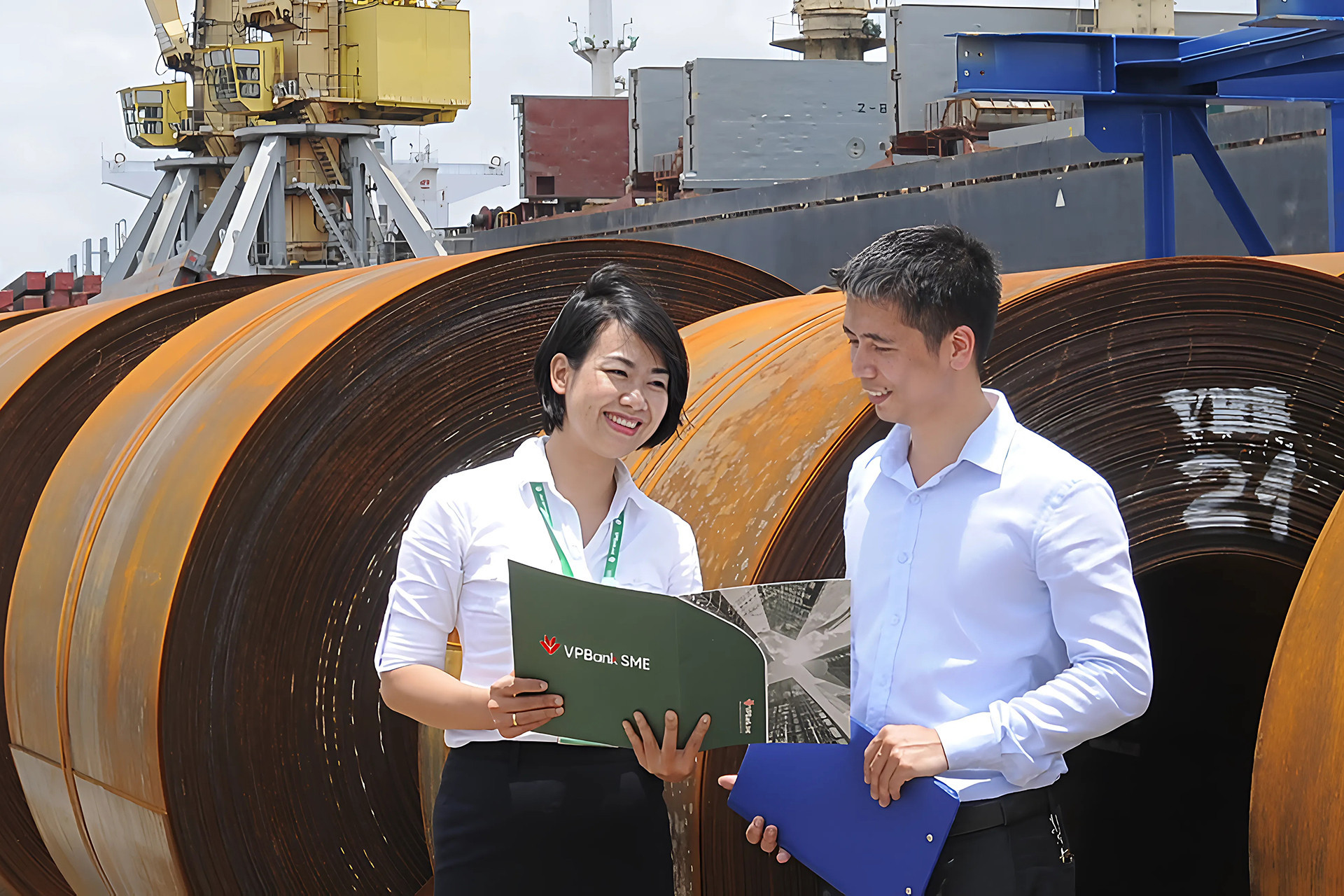
Amid ongoing Vietnam-US negotiations over potential tariff adjustments, Vietnamese banks have begun developing response strategies in case new U.S. tariffs are imposed on Vietnamese goods.
Eximbank, a major player in trade finance, is taking proactive measures. Chairman Nguyen Canh Anh shared at the bank’s General Shareholders’ Meeting that recent developments have prompted Eximbank to focus on potential and secure clients, leveraging its strengths in retail and export-import lending.
“Given our export-import lending strength, Eximbank will conduct detailed assessments to ensure asset quality remains intact,” Nguyen Canh Anh stated.
Vietcombank, which holds a 20% market share in international payments and domestic trade finance, is also bracing for potential impacts. Chairman Nguyen Thanh Tung noted that the bank has worked proactively with clients to diversify export markets and collaborated with regulatory bodies to recommend tailored responses for different industries.
On May 1, a Vietnamese technical delegation traveled to the U.S. for bilateral trade negotiations. This move highlights the U.S.’s recognition of Vietnam as a serious and cooperative partner and signals an acknowledgment of Vietnam’s concerns.
MB Bank Chairman Luu Trung Thai emphasized Vietnam’s proactive and flexible approach, supported by labor, natural resources, and an open economy. He expressed confidence that Vietnam would find ways to mitigate potential economic risks and sustain growth.
Meanwhile, CEO Pham Nhu Anh stated that MB is targeting a modest 10% profit growth this year, citing declining lending rates and mounting challenges from global trade conflicts. The bank plans to raise its profit target when conditions improve and will continue supporting businesses affected by U.S. tariffs on Vietnamese goods.
Industrial real estate firms may be vulnerable
VPBank CEO Nguyen Duc Vinh expressed optimism about the trade negotiations but acknowledged that rising tariffs could affect businesses, including foreign direct investment (FDI) firms and traditional Vietnamese exporters.
He noted that loans to exporters selling to the U.S. account for only 3% of the bank’s total credit portfolio, meaning any direct impact would be minimal.
VPBank currently serves around 500 FDI companies through a strategic partnership with SMBC. The bank’s outstanding FDI loans total more than VND 10 trillion (about USD 400 million), with new lending estimated at over VND 6 trillion (roughly USD 240 million). So far, these clients have not experienced direct effects from the tariff discussions.
However, Vinh stressed the need for caution when assessing industrial real estate companies. “Most exporters are small and medium enterprises. Our biggest concern is consumer purchasing power. If industrial zones are affected, it could lead to job losses and declining consumer demand,” he said.
At HDBank’s general meeting, acting CEO Pham Quoc Thanh said the bank had reviewed its loan portfolio and identified clients potentially impacted by U.S. tariffs.
HDBank’s exposure to U.S.-bound exporters is limited, accounting for less than 1.5% of its total outstanding loans. Nevertheless, the bank plans to implement support policies for affected customers.
KienlongBank acting CEO Tran Hong Minh noted the bank’s credit is focused on the Mekong Delta region, particularly rice producers and businesses. In response to the new tariff risks, KienlongBank is shifting toward green credit solutions to reduce exposure to the U.S. tariff policy’s impact.
At LPBank, Vice Chairman Bui Thai Ha reported that the bank has already assessed its exposure and implemented multiple response strategies.
“Only 0.3% of LPBank’s total outstanding credit is tied to businesses affected by U.S. tariff policies. Therefore, we don’t expect this to impact our credit quality. Moreover, positive signs from the ongoing tariff negotiations between Vietnam and the U.S. give us reason to believe in a favorable outcome for Vietnam,” said Bui Thai Ha.
Tuan Nguyen